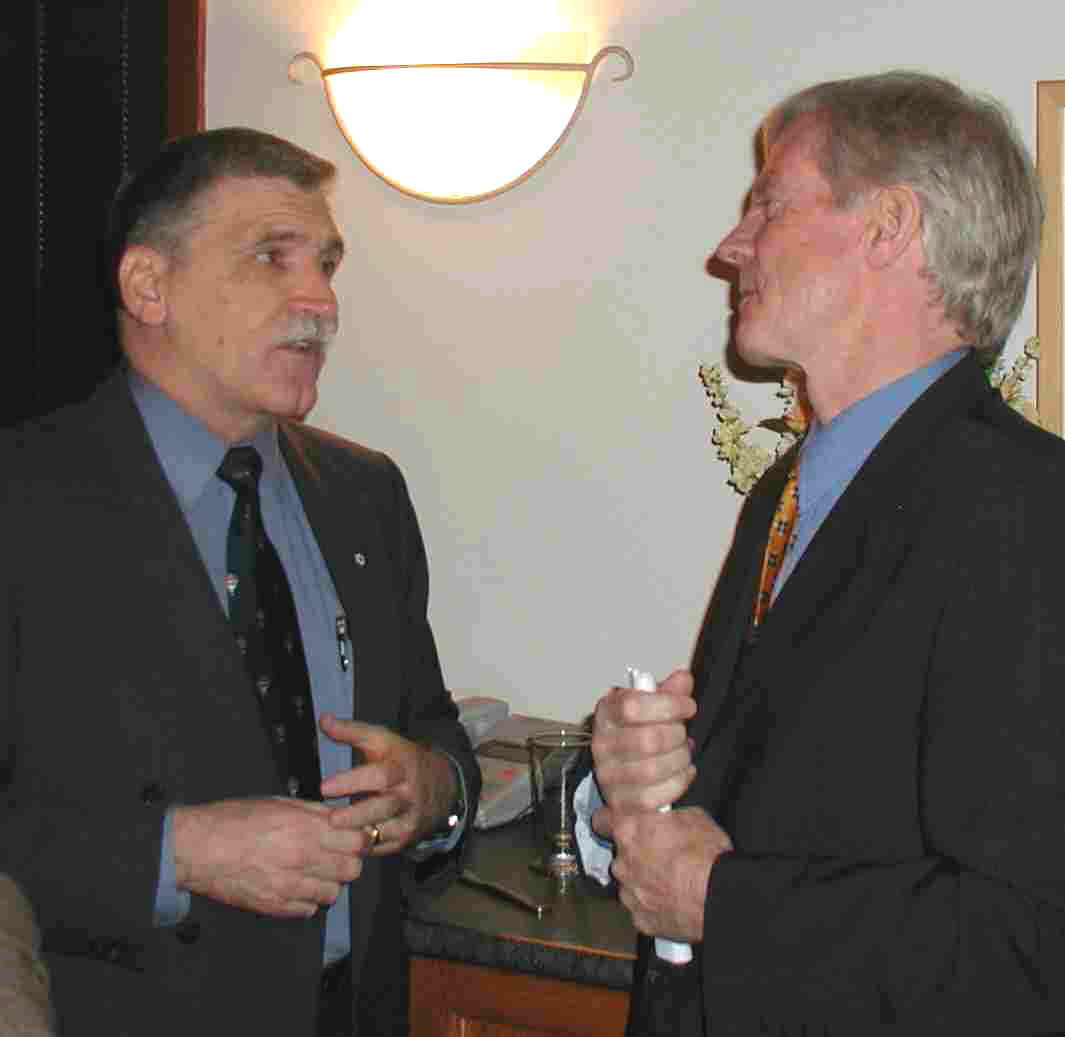
Quick Link
for your convenience!
Human
Rights, Youth Voices etc.
For
Information Concerning the Crisis in Darfur
Whistleblowers
Need Protection

|
| | Shake Hands with the Devil
Roméo Dallaire
Random House Canada, 548 pages ($39.95)
Review by David Kilgour for The Albertaner, Fall 2003

Lgen. Dallaire and David at a recent event in Edmonton. Photo:
S. Lalli
The author is probably more admired across the world today for his bravery, kindness and humanity than any other living Canadian. His account of what happened during the hundred days of hell in 1994, when more than ten per cent of Rwandans were murdered while governments capable of stopping the slaughter averted their eyes,
is long awaited.
The book covers the entire period of Dallaire's stay as the commander of the UN Assistance Mission for Rwanda; there is scarcely an unimportant page. We learn who
were the heroes, competents and genocidaires. Paul Kagame, for example, "the Napoleon of Africa" and recently elected as President of Rwanda, comes across mostly sympathetically as the leader of the Rwandan Patriotic Front. But Dallaire also accuses him of not attempting vigorously enough to halt the genocide earlier for strategic reasons.
Much of the UN system, especially the Security Council [the U.S., U.K. and France] does not emerge with honour. In the case of the then-government in Ottawa, Dallaire notes that the Defence department wanted to send soldiers with him as the force commander, but Foreign Affairs, the lead ministry, had by then become more interested in Central Europe and was able to block even minimal participation until too late.
The Ghanaian, Tunisian and Senegalese peacekeepers were the best of those who did accompany Dallaire. He
also assesses the 1300 Belgian soldiers who came for a short period, praising their
commander (who astoundingly was later court-marshalled in Brussels) as heroic. When ten of his soldiers were murdered in an
anticipated attempt to cause the entire mission to cut and run, the Belgian government, in the author's words, opted to turn "its back on the plight of 8.3 million Rwandans in peril and the 800,000 women, children, elders and men who would die at the hands of the extremists." Dallaire and 250 peacekeepers from twenty or so countries were left to witness the
tragedy and save lives as best they could.
The UN-mandated French intervention in the western region of Rwanda - "Operation Turquoise" - also comes in for criticism. The problems that arose from
it led to the eventual departure of UNAMIR's French-speaking African peace-keepers. Dallaire judged the operation a cynical exercise in advancing Paris's self-interest in the country, especially when its 2,500 special forces appear not to have moved effectively to disarm genocidaries operating in their own zone.
Dallaire concludes by considering how the international community can prevent future Rwandas. The key for him is that the entire UN system and governments across the planet must never again opt to rank some people "as more human than others, a mistake that the international community endorsed by its indifference in 1994." It's easy to agree, but, as the author knows well, the hard part will be getting us all to walk our talk in the face of the next
human security catastrophe which shrieks for humanitarian intervention.
|
